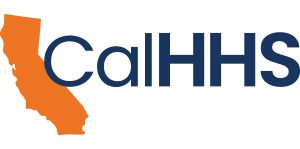FOR IMMEDIATE RELEASE
DATE: December 16, 2020
CONTACT: Vincent.Martinez@chhs.ca.gov
Sacramento, CA –California Health and Human Services Agency Secretary Dr. Mark Ghaly, along with Cal Hospital Compare, recognized hospitals across California today for their high performance in maternity care and commitment to appropriate opioid use.
- 32 hospitals met performance standards in both maternity and opioid care.
- 141 hospitals met performance standards in maternity care.
- 53 hospitals met performance standards in opioid care.
“Improving the quality of patient care in hospitals is an ongoing process,” said Dr. Ghaly. “These annual measurements through Cal Hospital Compare help us to applaud those hospitals doing excellent work and show where improvement is needed. With the impact of COVID-19 on our health care community, it is even more important to celebrate exemplary hospital performance.”
“Cal Hospital Compare is proud to contribute to the statewideffort to improve quality in the hospital setting by providing a roadmap and way to evaluate performance for hospitals in the important areas of maternity and opioid care – and show where improvement is needed,” said Bruce Spurlock, MD, the executive director of Cal Hospital Compare. “We invite all California hospitals to use these honor rolls as a tool to evaluate and benchmark performance against other hospitals.”
Cal Hospital Compare, a nonprofit organization, has been providing Californians with objective hospital performance ratings for more than a decade. For the last five years, California has also recognized hospitals that meet or exceed a statewide target of C-section rates of 23.9 percent for low-risk, first-births. For mothers, overuse of C-sections can result in higher rates of complications like hemorrhage, transfusions, infection, and blood clots. The surgery also brings risks for babies, including higher rates of infection, respiratory complications, neonatal intensive care unit stays, and lower breastfeeding rates. The California Maternal Quality Care Collaborative collects the data and actively works with hospitals to safely reduce low-risk C-sections. Between 2014 and 2019, the percentage of California hospitals meeting the target went from 40% to 65%, representing 141 hospitals statewide. While there is still significant opportunity for improvement, the fact that so many hospitals have already reached or surpassed this target indicates that reducing unnecessary C-sections is a top priority for California hospitals providing maternity care.
Today, Cal Hospital Compare is releasing its first Opioid Care Honor Roll, recognizing 53 hospitals for their progress and performance promoting safe and effective opioid use, providing treatment for patients with opioid use disorder, and providing access to naloxone to prevent opioid overdoses. According to state data, over 2,400 Californians died of an opioid-related overdose in 2018. Patients with opioid use disorder are frequently hospitalized or visit the emergency department due to complications of the condition without also receiving treatment for the underlying disease of opioid addiction. This is a missed opportunity and leaves patients untreated and at high risk of future overdose. In 2020, 89 hospitals voluntarily reported their progress on addressing the opioid crisis. While results show participating hospitals are making progress, it is also clear more work is needed, when results are compared to those collected in the 2019 pilot year. Opportunities include addressing stigma among physicians and staff, patient and family engagement, and developing innovative strategies that consider social determinants of health. In 2021, Cal Hospital Compare will continue to offer learning opportunities to support the rapid spread of evidence-based practices among hospitals.
“I encourage all hospitals to participate in the Opioid Care Honor Roll program next year,” said Dr. Ghaly. “Cal Hospital Compare has numerous free resources available that will help hospitals be more effective against this epidemic. Participating in the Opioid Care Honor Roll demonstrates a hospital’s commitment to treating opioid use disorder and reducing deaths from addiction.”
“In particular, we’d like to applaud the following 32 hospitals for achieving recognition on the Maternity and Opioid Care Honor Rolls,” said Dr. Ghaly. For more information on individual honor rolls and recipients please refer to the Cal Hospital Compare website.
| 32 Hospitals with Maternity and Opioid Care Honor Roll Status | |
| Hospital Name | City |
| Adventist Health Clear Lake | Clearlake |
| Adventist Health Rideout Memorial Hospital | Marysville |
| Adventist Health Ukiah Valley | Ukiah |
| Bakersfield Memorial Hospital | Bakersfield |
| California Hospital Medical Center | Los Angeles |
| Community Hospital of the Monterey Peninsula | Monterey |
| Contra Costa Regional Medical Center | Martinez |
| Doctors Medical Center of Modesto | Modesto |
| Enloe Medical Center – Esplanade Campus | Chico |
| Harbor – UCLA Medical Center | Torrance |
| Highland Hospital | Oakland |
| Marshall Medical Center | Placerville |
| MemorialCare Saddleback Medical Center | Laguna Hills |
| Mercy Medical Center Mount Shasta | Mount Shasta |
| Mercy Medical Center Redding | Redding |
| Mission Hospital – Mission Viejo | Mission Viejo |
| Olive View – UCLA Medical Center | Sylmar |
| Providence Saint John’s Health Center | Santa Monica |
| Santa Clara Valley Medical Center | San Jose |
| Scripps Memorial Hospital – Encinitas | Encinitas |
| Scripps Mercy Hospital | San Diego |
| St. Bernardine Medical Center | San Bernardino |
| St. Joseph Hospital, Eureka | Eureka |
| St. Joseph’s Medical Center – Stockton | Stockton |
| St. Louise Regional Hospital | Gilroy |
| St. Mary Medical Center – Apple Valley | Apple Valley |
| St. Mary Medical Center Long Beach | Long Beach |
| Sutter Medical Center – Sacramento | Sacramento |
| UC Irvine Health | Orange |
| UCLA Health | Los Angeles |
| Woodland Healthcare | Woodland |
| Zuckerberg San Francisco General Hospital and Trauma Center | San Francisco |


